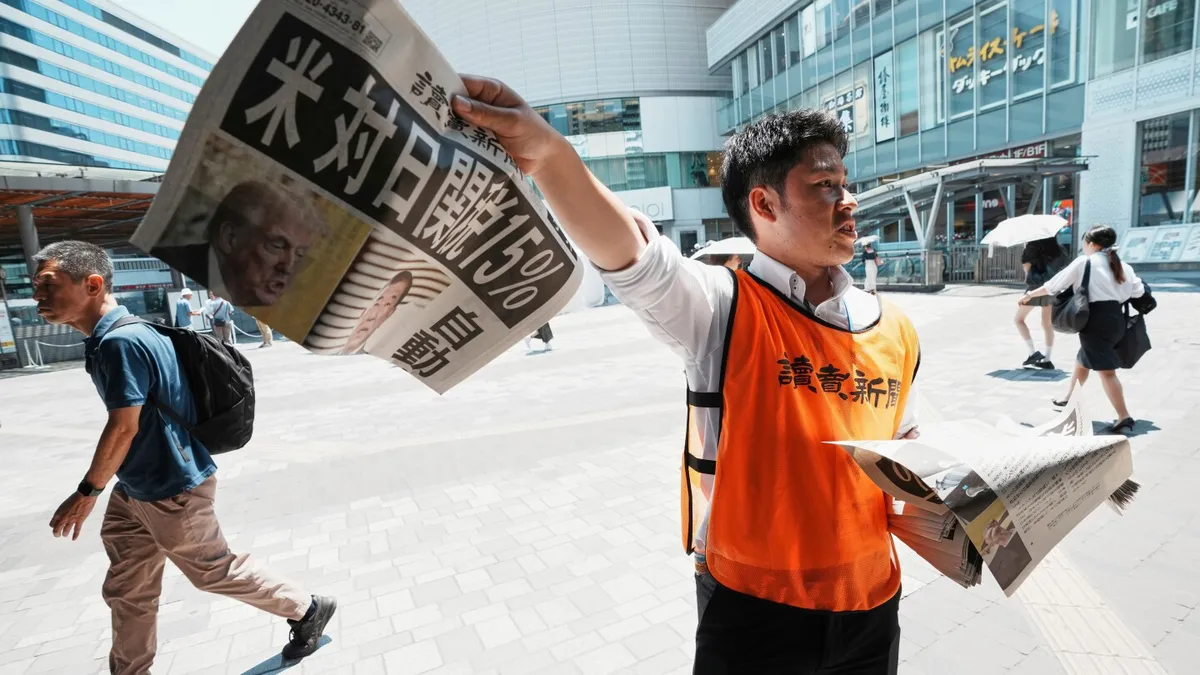
In a bold declaration, President Donald Trump has asserted that Japan will invest a staggering $550 billion into the United States as part of a new trade framework. This figure, while remarkable, is still subject to ongoing negotiations and may not be as definitive as the president suggests. During a recent speech, Trump stated, “Japan is putting up $550 billion in order to lower their tariffs a little bit. They put up, as you could call it, seed money. Let’s call it seed money.”
Trump claims that 90% of any profits generated from this investment will benefit the U.S., even though the funds will originate from Japan. “It’s not a loan or anything; it’s a signing bonus,” he emphasized, referring to the trade framework that has successfully reduced his threatened tariff on Japanese goods from 25% to 15%, particularly impacting the automotive sector.
However, a White House official has clarified that the terms of this agreement are still being negotiated, and no formal documentation has been established. This unnamed official indicated that the aim is for the $550 billion fund to facilitate investments directed by Trump himself. The significance of this sum is notable, as it exceeds 10% of Japan’s entire gross domestic product.
According to the Japan External Trade Organization, direct investment into the U.S. economy surpassed $780 billion in 2023. Yet, it remains unclear how much of the $550 billion will constitute new investments versus being allocated to existing plans. The trade framework, announced on Tuesday, serves as a crucial talking point for the Trump administration, which has claimed to have attracted trillions of dollars in new investment to the U.S. However, the tangible effects of these commitments have yet to be reflected in economic indicators such as job creation, construction spending, or manufacturing output.
The recent trade framework also allows Trump to assert that other nations are consenting to tax their goods, albeit with the understanding that some of these tax costs may ultimately be passed on to U.S. consumers. Japan’s Cabinet Office has indicated that the $550 billion investment involves credit facilities from state-affiliated financial institutions, including the Japan Bank for International Cooperation. The specifics of these investments will be determined based on the progress of negotiations.
Upon returning to Japan, Japanese trade negotiator Ryosei Akazawa refrained from discussing the particulars of the $550 billion investment. He noted the necessity for a written joint statement at the working level to prevent misunderstandings, stating, “If we find differences of understanding, we may have to point them out and say ‘that’s not what we discussed.’”
The U.S. administration has announced that the fund will focus on sectors such as critical minerals, pharmaceuticals, computer chips, and shipbuilding. Additionally, it has been reported that Japan will purchase 100 airplanes from Boeing and rice from American farmers as part of the framework. Treasury Secretary Scott Bessent remarked that the agreement would be evaluated every three months, stating that if the president is dissatisfied, tariffs could revert to the original 25% rates on cars and other products. Bessent emphasized, “I can tell you that I think at 25, especially in cars, the Japanese economy doesn’t work.”
In response to Bessent's comments, Akazawa denied that quarterly reviews were part of the negotiations. He expressed concerns that fluctuating tariff rates could disrupt both the economy and administrative processes. Furthermore, regarding U.S. rice imports, Japanese officials have stated they have no intention of increasing the current import cap of 770,000 tons. Agricultural Minister Shinjiro Koizumi emphasized that Japan will make decisions on U.S. rice imports on a case-by-case basis, without committing to fixed quotas.
Trump's commerce secretary, Howard Lutnick, suggested that the agreement with Japan could exert pressure on other nations, such as South Korea, to negotiate similar deals with the U.S. While Trump travels internationally, he is scheduled to meet with European Commission President Ursula von der Leyen to discuss trade further. Lutnick remarked, “Whatever Donald Trump wants to build, the Japanese will finance it for him. Pretty amazing.”
This ongoing trade dialogue highlights the complexities of international negotiations and the potential impacts on both U.S. and Japanese economies as discussions continue to evolve.